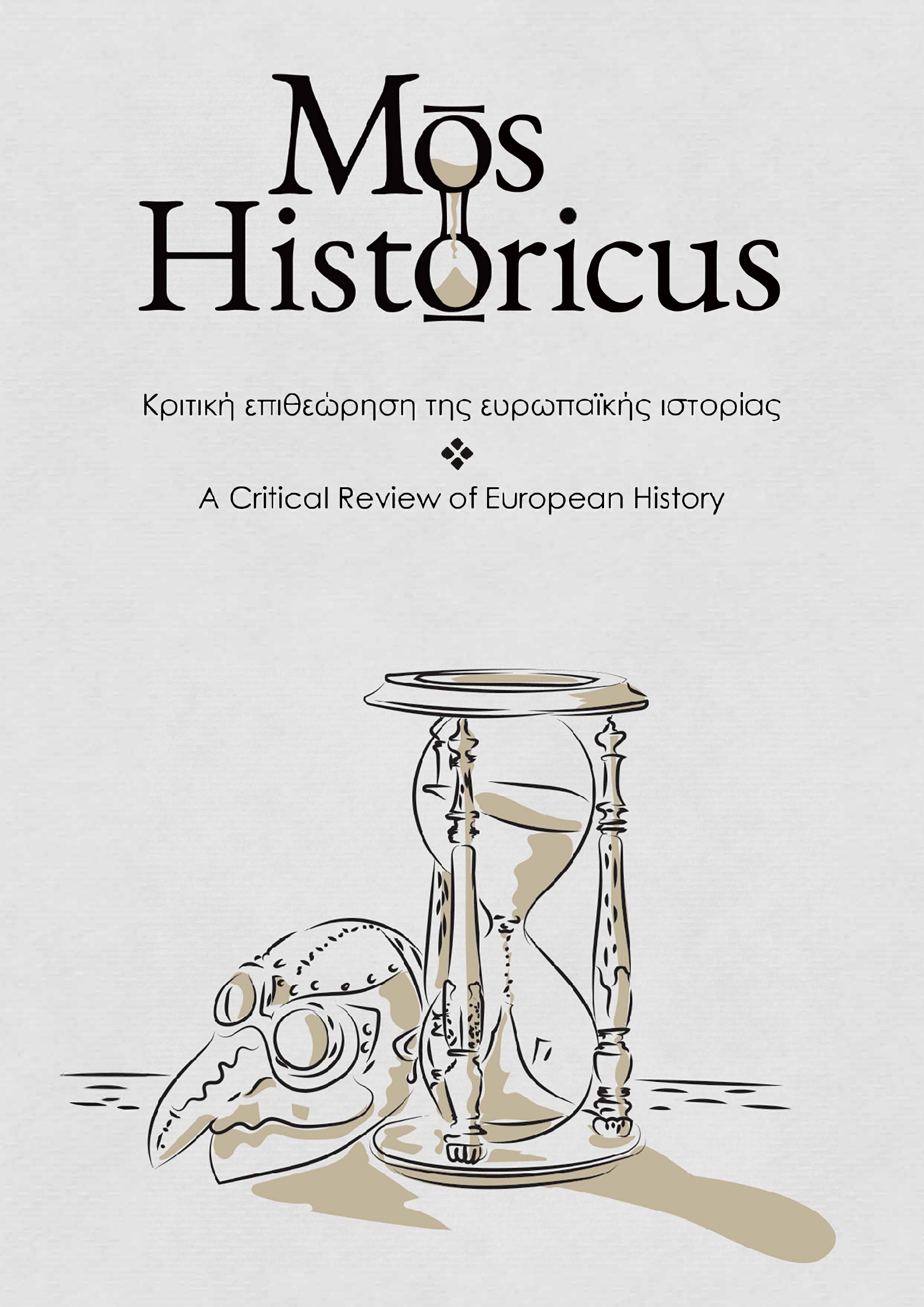Isolation and the "epidemic" of melancholy in the Early Modern Europe: A cultural approach to melancholy

Abstract
This paper is looking at the ‘epidemic’ of melancholy in early modern Europe. The dialogue of Stefano Guazzo Civil Conversation (Venice 1574) is taken as a case study as well as its dissemination in Europe. More specifically, it investigates the problem of isolation as the cause of the malady of melancholy. Furthermore, it indicates that melancholy could be cured through friendship and conversation, especially that between men and women. Friendship was viewed as milestone for the well-being of one person but also for the society as a whole. The issue of company and conversation is being viewed within court and civil culture and the key to social equilibrium and the cure to melancholy.
Article Details
- How to Cite
-
G. Leontsini, M.-K. (Maritina). (2023). Isolation and the "epidemic" of melancholy in the Early Modern Europe: : A cultural approach to melancholy. Mos Historicus: A Critical Review of European History, 1(1), 79–99. https://doi.org/10.12681/mh.34278
- Section
- Articles

This work is licensed under a Creative Commons Attribution 4.0 International License.
Copyright Ownership:
Authors retain full copyright over their work published in Mos Historicus: A Critical Review of European History. By submitting to and publishing in the journal, authors grant Mos Historicus the exclusive right to first publication. All published works are made available under the Creative Commons Attribution 4.0 International Licence (CC BY 4.0).
License Terms:
Under the CC BY 4.0 third parties may copy, distribute, display, and adapt the work for any purpose, provided that:
i. the original author and the original publication in Mos Historicus are properly credited,
ii. and any modifications, adaptations, or other changes to the original work are clearly indicated.


